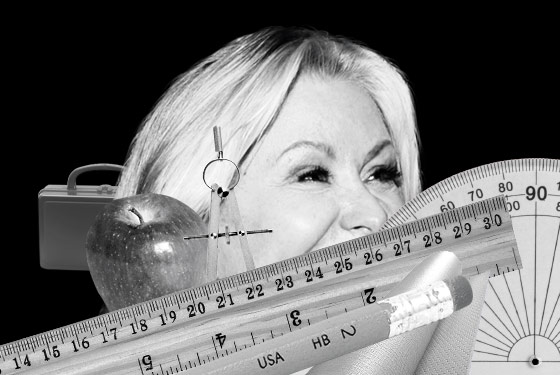
‘All children learn,” the willowy but tough-as-nails philanthropist–slash–edu-preneur Courtney Ross likes to say. “You just have to invest in them.” But this week, the city’s Department of Education announced it would no longer be investing in her Ross Global Academy, the charter school she opened four years ago.
From the start, there was a high-minded and controversial swirl to the place—the yoga and t’ai chi classes, the plush décor, the aggressively multicultural curriculum, the overwhelming sense of noblesse oblige (Ross, widow of former Time Warner CEO Steve Ross, is also the force behind the Ross School in the Hamptons—the one with the koi pond). A state-test-score-fudging scandal and revolving-door front office (overseen by four principals in four years, by the school’s own count) only fueled perceptions of good intentions gone awry. But there was a second perception: that the school was protected politically. Rumor was that the Ross Global Academy was a pet project of Chancellor Joel Klein, supposedly a good friend of Ross—a claim Klein has denied.
Now Klein is departing, and the DOE is recommending the state not renew the school’s charter. There may be something to that timing. But more plausibly, Ross Global Academy is a casualty of the direction and pitch the debate over all charter schools is taking.
To their defenders, typified by the Waiting for “Superman” crowd, charter schools offer a private-school-like education to some of the neediest students. Klein consistently looked to charters as a way to democratize opportunity. Ross, by turns imperious and nurturing, was hailed by a city official just last winter for her hands-on approach to giving the underclass of New York a state-of-the-art education. For some kids, the school has worked. “My daughter’s doing sixth-grade math in the fourth grade,” says Melissa Banigan, the school’s parent and testing coordinator. “If I were a parent who had not gotten into a charter school, I’d be very jealous of the services I was getting.”
To their detractors, among them the teachers union, charter schools aren’t just coddled—they’re spoiled rotten, set up to succeed on paper just as regular district schools are neglected and closed. Despite the organic vegetables at lunch, Ross Global Academy reportedly had a mammoth student-attrition rate and a bullying problem, and it received a grade of C-minus from the DOE’s rating system for last school year. Some parents have been wondering when somebody in charge was going to notice. “My daughter’s sixth-grade class performed horrifically,” Mariama Sanoh, vice-president of the New York Charter Parents Association, wrote in a blog post two months ago. Nine percent had scored at the proficiency level in English (the state average is 54 percent), 11 percent in math (state average 61 percent). “Where is their accountability in this fiasco?”
It’s not over yet. Courtney Ross’s institute has dispatched its crisis-PR specialist, and supportive parents are mobilizing, arguing the city violated its own process. “You know what I think?” says school-board member Stephanie Wilson, whose elder son got into Brooklyn Tech after finishing at Ross. “The DOE had to make some tough financial decisions, and they knew they couldn’t close just regular schools—they’d have to close charter schools too. They made up their own minds before they even met with us.” Whatever shortcomings Ross Global may have—and however fun it might be to laugh at its high-toned décor—the fact is that 400 students, most of them black and Hispanic, don’t know where they’ll be going to school next year.
If this is really the end, the Ross Global Academy will finish its life much the way it started: as a symbol. First it was a way to bring the most-elite trappings of education to everyone. Now it’s a way for the system to show that no one is immune to its whims.
Have good intel? Send tips to [email protected].